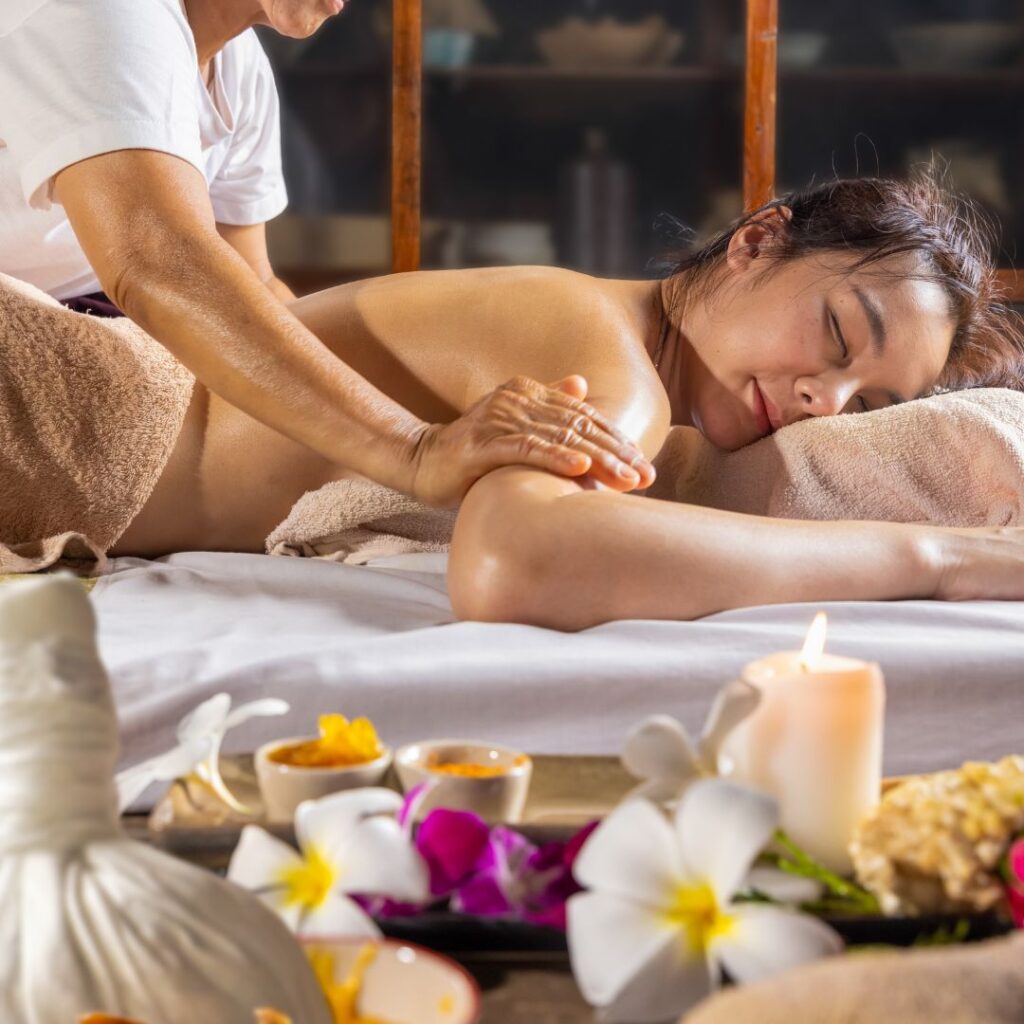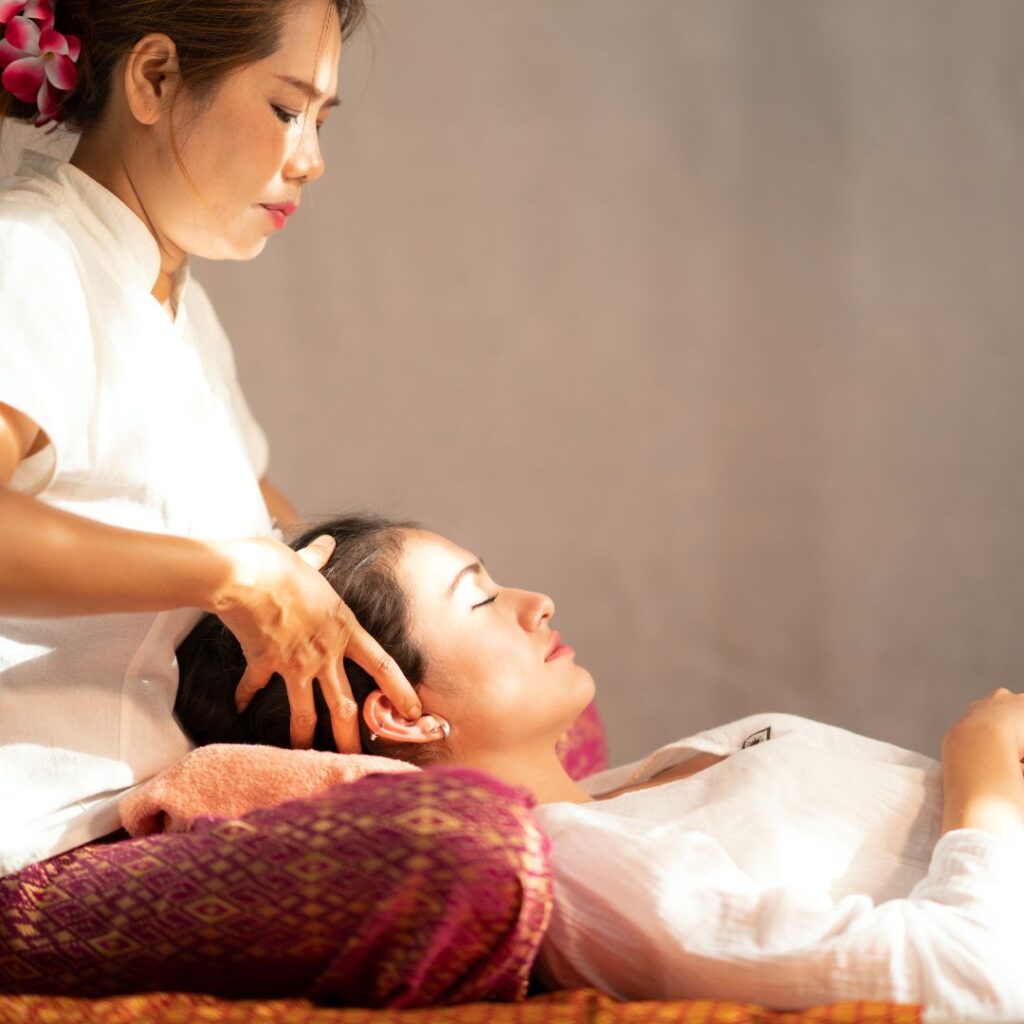Nuad Thai School offers a range of certification programs designed to provide in-depth training and practical skills in the ancient art of Thai massage. These programs are typically aimed at both beginners who wish to start a career in massage therapy and experienced practitioners looking to deepen their knowledge and refine their techniques. Here’s what you can generally expect from the certification programs at Nuad Thai School:
1. Comprehensive Curriculum
The certification programs cover all the foundational elements of Thai massage and may also dive deeper into advanced techniques, traditional healing practices, and anatomy. Courses often include:
- Basic Thai Massage: Covers the fundamental techniques, including stretching, acupressure, and the application of pressure to specific body points, usually performed on a floor mat.
- Advanced Thai Massage: For those with some prior experience, this course teaches more complex techniques, focusing on therapeutic methods and targeted muscle relief.
- Thai Herbal Compress: Learning how to use herbal compresses in combination with Thai massage techniques.
- Thai Foot Massage: Focuses on reflexology and the art of massaging the feet and lower legs using Thai techniques.
- Traditional Healing and Energy Work: Explores the energetic aspect of Thai massage, including the use of Sen lines (energy pathways) and other traditional Thai healing practices.
2. Hands-On Practice
Expect a significant portion of the program to be hands-on, with plenty of time spent practicing techniques on classmates and receiving feedback from instructors. This practical training is critical for building proficiency and confidence.

3. Experienced Instructors
The instructors at Nuad Thai School are typically highly experienced practitioners, many of whom have deep knowledge of Thai culture, traditional healing methods, and anatomy. You’ll likely have access to personalized guidance and mentorship.
4. Cultural and Historical Insights
In addition to learning the physical techniques, the programs may incorporate elements of Thai culture, philosophy, and history. This can help students understand the holistic approach to Thai massage and the cultural significance of each practice.
5. Anatomy and Physiology
In most programs, you’ll also receive some level of anatomy and physiology training, which is crucial for understanding the body’s systems and how massage techniques interact with them. Knowledge of muscle groups, pressure points, and the effects of different types of massage is important for ensuring the safety and effectiveness of treatments.
6. Certification and Accreditation
Upon successful completion of the program, students usually receive a certification that acknowledges their competence in Thai massage techniques. This certification may be recognized by professional organizations, allowing graduates to pursue a career as certified massage therapists.
7. Study Materials and Resources
Students typically receive comprehensive study materials, including textbooks, handouts, or access to online resources. These resources are designed to help reinforce learning and serve as references after the program is completed.
8. Classroom Environment
Expect a welcoming, focused, and respectful learning environment, where students are encouraged to ask questions and learn from both the instructors and their peers. Classes may be conducted in small groups, allowing for individualized attention.
9. Duration and Scheduling
The length of the program can vary depending on the type of certification being pursued. Some programs may last a few weeks, while others could extend for several months. There are often flexible scheduling options, such as full-time, part-time, or weekend classes, to accommodate different students’ needs.

10. Post-Certification Support
After completing a certification program, many students receive support in terms of job placement assistance, continuing education opportunities, or access to an alumni network. Some schools also provide workshops or additional advanced courses for ongoing learning.
11. Cost
The cost of certification programs can vary depending on the duration and level of the course. However, many Thai massage schools, including Nuad Thai, aim to provide value by ensuring students get a thorough and practical education.
Conclusion
When you enroll in a certification program at Nuad Thai School, you can expect a well-rounded education in traditional Thai massage techniques, with a strong emphasis on hands-on practice, cultural understanding, and professional development. The program is designed to prepare you for a career as a qualified Thai massage therapist or deepen your knowledge for personal or professional growth.

